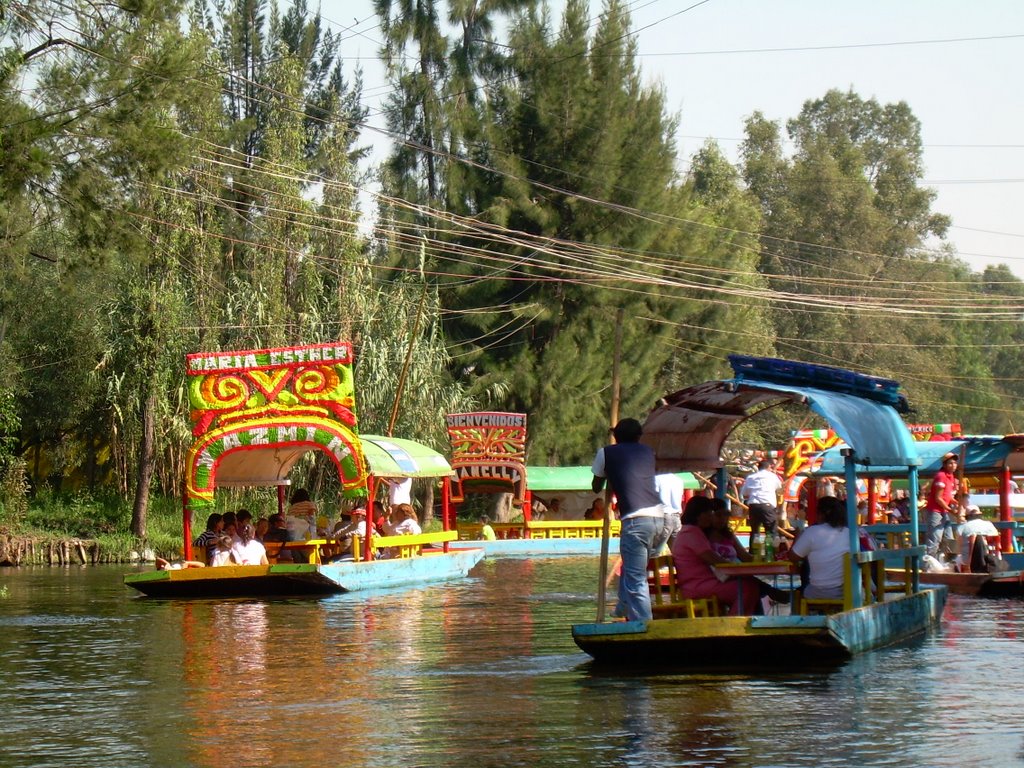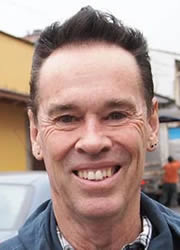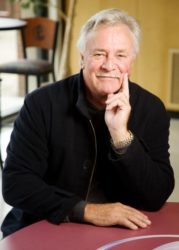A Four Part Interview with Colin Lankshear Experimenting with Academic Biography
PART 3: From Despair to México via Australia
Michael: You resigned as soon as you had completed your post-sabbatical obligations, and with no job in mind. What happened then?
Colin: Things happened quite quickly.
I was thrown an economic lifeline by the newly established New Zealand Qualifications Authority (NZQA). They wanted a broad philosophical grounding for their proposed Qualifications Framework.

To undertake this, I teamed up again with Allan Levett. Allan was a very smart and wonderfully humane man who understood sociological and historical complexity and eschewed ideological short cuts. He was genuinely interested in what was happening in the world, and what could be done with that politically in terms of trying to nudge things in progressive directions. He introduced me to the emerging canon of ‘fast capitalist texts’ and how, in association with new technological and globalisation trends, deep changes were occurring in work worlds and economies. In an E.D. Hirsch kind of way — he was no conflict theorist — Allan believed that a base of widely shared values was integral to the health and viability of a society; and he drew strongly on Robert Bellah and colleague’s ideas about excesses of individualism and economic forces that undermine ‘the web of moral understandings and commitments that tie people together in community.’
By that time I was living in a former stable hand’s quarters on a farm on the banks of the Manawatu River just outside of Palmerston North, New Zealand: living simply, just taking the days as they came. I was resolving a few things intellectually, because reading about what I’d later call the new work order was giving me a fresh sense of how I could study and write in new ways that aimed to address aspects of the world and the human condition. Folk at Massey University kindly gave me some courses to write. During 1992-93, Allan’s and my work bore titles like: Recent Global Economic and Social Trends Relevant to Education; Values for Education in New Zealand; and Literacies, Workplaces and the Demands of New Times.
Michael: How was this work received?
Colin: I got the feeling that some people I’d been close to politically and academically wondered if I had ‘sold out’ and/or had become politically opportunistic. That rankled, because I was trying to stare down the fact — as I saw it — that things were more complex than ‘toeing’ a particular ideological line had previously inclined me to believe. I had found it very hard in Nicaragua reconciling my personal circumstances with those of the people and causes I was ‘siding’ with, and had wrestled with the complexity of Freire’s concept of class suicide. I was trying out some new options and ideas to see if I could get some better coherence. By early 1992 I was enjoying life more than I had since the peak experiences of being immersed in everyday life in Monte Fresco. There was still a good two years of NZQA funding in the pipe. Allan and I had a research base in his office in Wellington. I was engaged, working my way toward a place where I could feel ideologically at home.
Michael: But you moved on soon after.
Colin: Accidental academic life hit hard.
I received two phone calls (from a Head of School, and a Dean), asking if I would take a job in Brisbane. I was flattered they had thought of me, but I was happy with what I was doing. A couple of weeks later I accepted an invitation to do a keynote at a conference in Brisbane on critical literacy. An academic at Southern Queensland University (USQ) heard the organisers were getting Jim Gee and me over to talk and invited me to Toowoomba for a week before the conference to spend time with their literacy staff and students. (Jim visited the week after the conference.)

However, my USQ sponsor was unavailable, so arranged for his grad student to get me to my appointments and show me around the university. That student was Michele Knobel.
I quickly made it known that I was now interested in the Brisbane job.
I realised this would compromise the working partnership with Allan, so put him and the NZQA in the picture immediately. There was no assurance I would get the job, and I considered a US candidate to be the frontrunner, but I was offered it the afternoon of the interview in August. NZQA said they were fine with Allan finishing off the contract alone, although it seemed to me a poor way to repay their providing me with an income when I had quit my job and had nothing on the horizon. I stayed until mid January 1993 and we progressed the NZQA work as fast as we could before I left. Allan took over the rest of the contract, and we continued to work at distance until I got overwhelmed with the task of setting up a research concentration in language and literacy education. Meanwhile, I kept reading those fast capitalist texts.
Michael: How did it work out directing Literacy Research in a Teacher Education Faculty?
Colin: Within a year I was leading a working party to establish a new bachelor’s degree in Adult and Workplace Learning aimed at workplace educators, training managers, workplace literacy consultants, and adult educators at large. It included courses that took a critical approach to economic restructuring and workplace reform, as well as courses focused on pedagogical approaches to adult learning, and curriculum development for workplace learning. Laurie Carmichael, who had negotiated the workplace reform agenda with the government and employers on behalf of the trade unions, came to the university to launch the new degree. He had examined our documentation, and in launching the program said that when he was doing his best to negotiate all this ‘reform’ (the ‘Accords’) our new program was exactly the kind of possibility he had hoped would emerge at the tertiary level.
It was interesting how so many things had fallen together in a reasonably coherent way, without any planning whatsoever on my part: reading the fast capitalist texts with Allan, meeting Michele, getting a job in a School of Language and Literacy education, spearheading a new program concerned with workplace education in the moment of fast capitalist economic restructuring, and (finally) meeting Jim Gee face to face. Jim had contributed a chapter to the Critical Literacy collection I had edited with Peter McLaren, and I had been gobsmacked within the first couple of pages of reading his chapter draft a couple of years earlier. Jim came back to Australia for the second critical literacy conference and stayed on with us for some weeks afterwards.
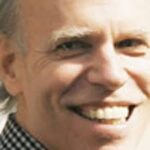
We sat in the sunroom one day chatting. I had tossed Jim a copy of a Harvard Business Review paper called ‘The Six Sigma Muffin’ (on the topic of quality control) by Motorola’s then Vice President for Human Resources. Jim read it and cogs were turning fast. We were talking away, and I said to him ‘Well, the way I think of it is that we are looking right now at the emergence of a new work order.’ A certain look came over Jim’s face, and it was all on. Jim’s conception of ‘order’ was way more nuanced and discursive than mine, which was vulgarly ‘sociological,’ but we quickly got on a shared page. I suggested we team up with Glynda Hull from Berkeley.
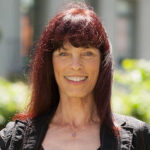 Glynda was researching workplace learning in Silicon Valley factories, and I thought her cases would work well alongside the study I had made of work at the opposite end of the spectrum in the co-op in Nicaragua. Jim’s discursive take on fast capitalist texts, and the ‘new’ capitalism and the sociocultural perspective all three of us had on literacy and learning, provided the glue that held it together. The outcome was The New Work Order: Behind the Language of the New Capitalism (1996).
Glynda was researching workplace learning in Silicon Valley factories, and I thought her cases would work well alongside the study I had made of work at the opposite end of the spectrum in the co-op in Nicaragua. Jim’s discursive take on fast capitalist texts, and the ‘new’ capitalism and the sociocultural perspective all three of us had on literacy and learning, provided the glue that held it together. The outcome was The New Work Order: Behind the Language of the New Capitalism (1996).
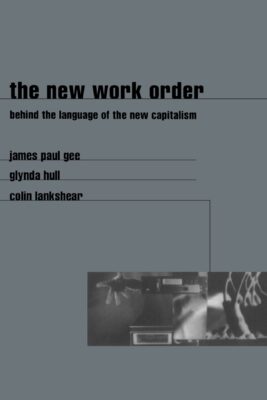
The educational ramifications of the new work order were part of what Allan and I had been trying to get at in Going for Gold when talking about schools having lost touch with the world their graduates would enter. We recognised the importance of pastoral care, good civic values, multiculturalism, and the like, but asserted that the kind of learning that builds strong academic knowledge and metalevel “skills’ is fundamental to economic as well as social life chances. For some reason that, or the way we had said it, seemed to annoy at least a few people — something I have managed to do regularly within academic circles; usually without trying; and often without understanding why. (It’s taken a long time to come to terms with that.) Nonetheless, I have managed to survive being an ‘accidental’ academic, doing academic work as a job, and without looking for work. Since 1991 work has always found me, and on terms I have found acceptable. I’m pleased with that and at peace with it. I have always had a love-hate relationship with writing. I don’t enjoy it, yet somehow need to do a certain amount of it. I think that writing is as close to vocational as anything gets with me. I’ve tried to retire from academic writing several times. From 1994 my writing became something I did increasingly in collaboration with Michele.
Michael: So what were the joint publications and how did they signify any shifts?
Colin: At first our joint publications were merely the visible culmination of something much larger and more complex; something that involved multiple kinds of shifts. It needs to be described ‘all together’.
I arrived at my new job to direct research in a School that had very few active published researchers. Trained as a philosopher of education, my formal ‘skill set’ was of limited value in a School of Language and Literacy whose research effort — like that of every other research unit in the country — was in the vice-like grip of Lyotardian performativity in the form of a research quantum: points and dollars. I had learned some rudiments of mixed methods research working with Allan Levett and with a research team in Nicaragua, and spent time on sabbatical learning some basics of ethnographic fieldwork. Not one postgrad student I had in 6 years in Australia would want a bar of philosophy. Most wanted to do qualitative research. Fortunately, Michele’s doctoral study involved ethnographic case study. I really had to get up to speed with empirical qualitative research and acquire data analysis skills and techniques associated with a range of theoretical approaches. There was learning to be done, fast.
In addition, at the time Australian literacy education was being strongly influenced by a home grown adaptation of Hallidayan linguistics known as ‘genre theory’ which was practically unknown in New Zealand when I left. To look like I knew anything about literacy in a teacher education faculty sense I had to get my head around this stuff. At the time we had a genre theorist in the School, Linda Gerot. And Michele knew some of the basics and had read some Halliday.
To make any headway in terms of research output and quantum it was important to find ways to ‘game the system’ — and gaming neoliberalism had a certain appeal. On staff we had an executive member of the Queensland node of the National Languages and Literacy Institute of Australia. The Institute nodes had a budget which included publishing. A book was worth something like 5 points. Part of the theory behind the ‘genre movement’ was that mastering genres enabled powerful uses of language. So, teaching the genres would empower students. My analytical philosophy offered me a way to elucidate ‘empowerment.’ Michele’s strengthening qualitative competence gave us methodology for classroom research. Linda gave us genre expertise. The Institute node formally published Learning Genres: Prospects for Empowerment — a study of student perceptions, understandings, and uses of reading and writing in Queensland primary school settings as a monograph, with Michele as first author. From out of the past I recycled Gerald MacCallum’s (1967) triadic relations analysis of positive and negative freedom as a four variable analysis of ‘empowerment.’ After featuring in Learning Genres, the ‘empowerment’ analysis ran in various packagings as book chapters, articles and conference papers — gaming the quantum.
There were multiple shifts involved here for me. First, was a shift toward the cynically pragmatic practice of gaming the quantum (mind you, anyone who knew how to do it pretty much was). There was a shift back to doing some old style analytic philosophy. There was a shift in thematic focus for a piece of qualitative research. And there was a shift toward researching something I had no authentic interest in. We made it interesting, and the three of us bonded in an enduring way. But who was this new research pretender?
Just as practice makes practice, so does quantum make quantum. The next year an Australia-wide team I was joint-leading won a major competitive research grant to investigate the use of new technologies in classrooms. This became the Digital Rhetorics project. Michele was not formally on the research team but she accompanied me on some of the classroom cases I was responsible for, and became a contributing writer. One case involved a teacher in a regional school who was doing interesting things in his classroom. He also had children doing very interesting things at home with new technologies. We went home and talked with the children. Neil had given his son the newly-minted PowerPoint software to work out and teach him about. But in company with some middle school peers, Ben had gone far beyond ‘making PowerPoint slides’ and unleashed the moving images capacity to create a hilarious themed animation based on The Simpsons. Stringing together a series of such cases, Michele and I ran a cheap riff off Shirley Heath’s celebrated title Ways with Words (1983) in the form of ‘Ways with Windows’. Ben’s way of making a popular cultural animation using ‘suit software’ became one of multiple cases we parlayed into quantum. Meanwhile, Michele made a big contribution to developing my assigned cases for the Digital Rhetorics project.
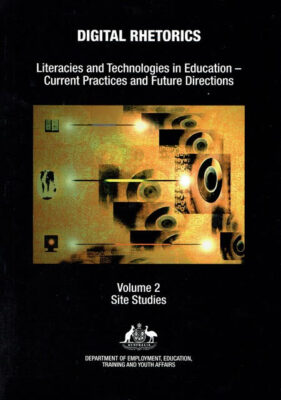
All the while, however, we were finding more and more interesting cases of what young people were doing out of school with new technologies. Many of these were wonderful down home examples of Manuel Castell’s idea of virtuous circles — and writing about them drew numerous invited keynote addresses and conference papers, as well as spawning book chapters, journal articles and, ultimately, books based on studies of the activities of youthful digital insiders. So much quantum. A lot of this played out in terms of the contrast between young people’s creative appropriations of new tools with the domestication of these same tools to business as usual in classrooms — e.g., our chapter on ‘New times! Old ways?’ in Fran Christie and Ray Misson’s book Literacy and Schooling (1998).
It was a wide-ranging and multifaceted collaboration, much of it following the now familiar logic of responding to what came up. Alongside genre theory, critical literacy was a favoured focus in Australian literacy education through the 90s. We published a chapter on critical literacy and active citizenship, and I later contributed a chapter to a collection on critical literacies in the primary classroom that Michele co-edited.
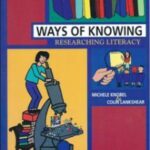 Our collaborative adventures in qualitative research yielded a how to do literacy research book pitched at teacher researchers at the primary school level, Ways of Knowing: Researching Literacy 1999.
Our collaborative adventures in qualitative research yielded a how to do literacy research book pitched at teacher researchers at the primary school level, Ways of Knowing: Researching Literacy 1999.
This short book became the seed for our Handbook for Teacher Research published 5 years later–which ran in English, Portuguese and Chinese editions, and components of early drafts ran as three Spanish language textbooks. When colleagues created a Masters of Education program in TESOL we signed up as students and completed the degree. Along the way we published books chapters and articles like ‘The wired world of second language learning,’ about early internet use in second language pedagogy. And we wrote two chapters together based on cases from Michele’s doctoral thesis in my 1997 book Changing Literacies. These chapters reflected frames and filters we were developing together in our study of literacies and new technologies. We continued surfing the waves that came along.
Notwithstanding the eclecticism, our work of this period was very much about identifying change trends — following on from my earlier work on the changing economy and changing workplaces — associated with the digital electronic revolution. We were trying to document what we saw going on around us in everyday contexts, through a ‘literacies as social practices’ lens, and with particular attention to young people and their cultural interests. What began as a collaborative practice born very much of solidarity in a context of necessity for sheer survival in a job became nothing less than a way of academic life and being. I can’t imagine a more thoroughly intertwined or more encompassing researching and writing collaboration than the one I have enjoyed with Michele..
In the end, however, we got sick of sheer survival, resigned our jobs, and headed for México in January 1999. We had no idea what we were taking on, but quickly found out we simply did not meet the criteria for gaining Mexican residency. That is, until we showed our immigration lawyer copies of Michele’s book Everyday Literacies, our Ways of Knowing, and my Changing Literacies. We found out that authoring books opened up a whole new avenue to gaining residence, as creative producers. We were in.
Michael: Ok let’s shift to Mexico. You have lived there for some time. Why do you base yourself in Mexico?
Colin: Not all that long after I met Michele we took a two week trip to Nicaragua. One morning I took her out to the community where I had lived. We got off the bus and walked down the dust road (as I called it; the 500 metres from where we got off the bus on the Old Road To Leon and the entry to the co-op I had lived on) and arrived at the cluster of homes. By sheer happenstance, we’d gone on the very day that the priest who had been serving the Monte Fresco neighbourhood during my sabbatical was visiting the community, to give a mass on his furlough from his current post in West Africa. Padre José and I had got on very well throughout my sabbatical. We went to the mass, spent time with Padre José, and then I showed Michele all over the co-op and the neighbourhood–including the small area I had been offered to build a dwelling on. We left as night fell to go back into Managua. and as we walked back down the dust road to catch a bus Michele said ‘I know you would love to come back and live here one day but, I have to tell you, I am very sorry there is no way I could do that’. And I understood that and appreciated the candor. On our way back to Australia we had a 2-3 day layover in Mexico City, and went directly to a hotel in Condesa where I stayed on previous trips We arrived a little after dusk and after tidying up I said to Michele ‘There’s a little cantina just down the road where the old men sit and play dominoes. Would you like to go down?’ We hadn’t gone 100 metres when Michele said ‘But I could live here.’
Whence Mexico. I was committed to living and working in Australia with Michele for however long she wanted. But during our time in Australia we had spoken vaguely about maybe living a while in Mexico sometime. There were no plans. One afternoon Michele got into a heated and bitter argument with the HoS over the kinds of courses she was involved in. The Dean learned about it overnight and next morning went to talk to Michele. Michele said it didn’t matter because we were going to Mexico anyway…… All of a sudden those vague ideas morphed into a specific and concrete decision …..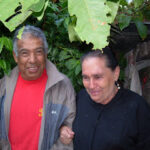
That, literally, is how it happened, and why it was Mexico we headed for. It was Michele’s very best spontaneity.



